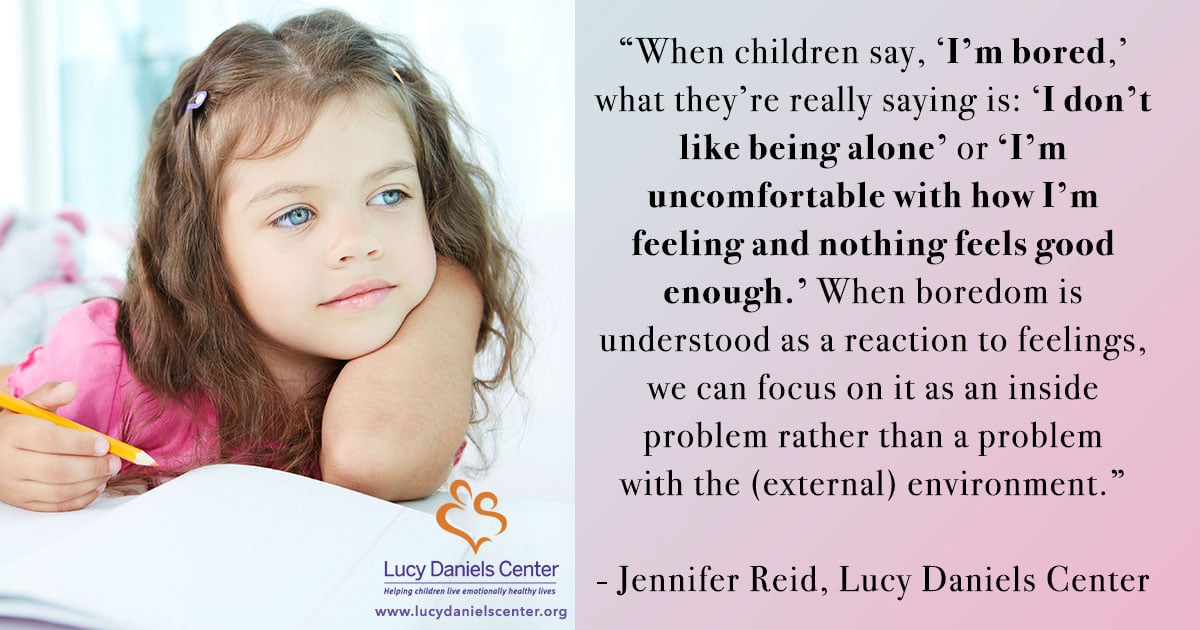“I’m Bored”
By Jennifer Reid
Early School Director/In-School Therapeutic Services Coordinator
Lucy Daniels Center
During this extended period of time at home, some parents are likely hearing complaints of boredom. Why do some children feel bored while others entertain themselves with their imagination alone? What’s a helpful way to respond to complaints of boredom?
What does “I’m bored” mean to a child?
Let’s first consider what is probably not boring to a young child: snuggles while reading, an afternoon with friends, and family game night. Children rarely complain that such activities involving companionship are boring. In these and other similar situations, children are connected and engaged in some way with others which means that they do not have to be alone with their thoughts. Worries and uncomfortable feelings tend to feel less uncomfortable in the company of supportive people.
Tasks that involve taking responsibility for one’s autonomy (playing or doing schoolwork independently, cleaning up, or getting ready for bed) and times when a child has to be alone often are the ones that are “boring.” If a child is upset or worried for other reasons and is then asked to embark on a task independently, being alone with the task becomes an even bigger challenge as the task is no longer just the task: it is the task plus the company of the uncomfortable feelings. Children tend to feel less comfortable on their own – and alone with their own thoughts – when they are angry, sad, upset, or worried.
Boredom is a state of mind
Taking into consideration that boredom is a statement about not wanting to be alone with one’s own thoughts, we can understand that a complaint about being bored is more likely a complaint about one’s feelings rather than the external components (the toys or the activities available). Therefore, “I’m bored” can be understood as meaning I don’t like being alone or I’m uncomfortable with how I’m feeling and nothing feels good enough.
When boredom is understood in this way – as a reaction to feelings – we can focus on it as an inside problem rather than a problem with the (external) environment. The best kind of help for an inside problem is help that seeks explanation and deepens understanding of how emotions affect overall capacities and behaviors. A simple supportive statement such as, “Something about being on your own right now doesn’t feel good to you. Let’s do such and such together and maybe we can figure out what’s on your mind,” may provide an opportunity to help your child recognize that their feeling of boredom is likely linked to a feeling of discomfort about something else.
Lucy Daniels Center is currently operating via telehealth services due to Covid-19. If you would like to request a consultation with a mental health clinician, please click here:https://tinyurl.com/slx79fe




